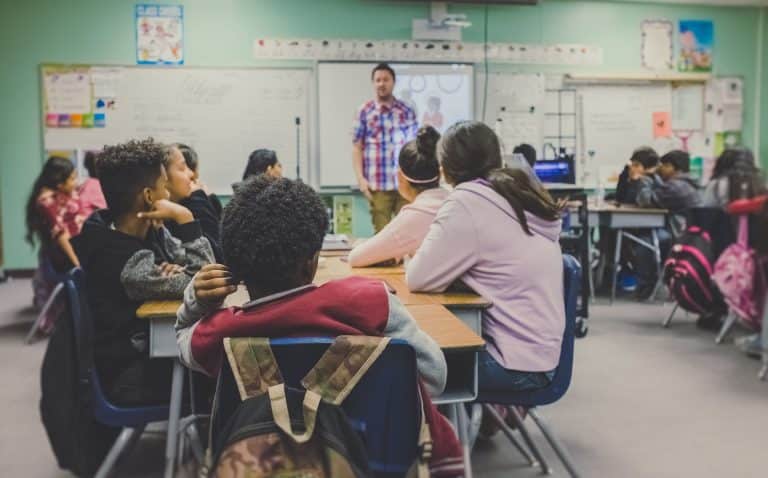We are a nation raising children that know more about active school shooter drills than imaginary play or learning to ride a bike. Let that sink in.
It often feels like a constant loop of the term “mass shooting” on our nightly news programs or in our newspapers across the country. In America, the term is littered throughout the media to the point of desensitization.
Mass shootings, especially school shootings, have almost become synonymous with the United States. Of course, these types of incidents also occur globally, but the frequency in the United States is unparalleled by any other nation.
So how do we solve this problem?
The Economy & Its Impact on Mental Health & Mass Shootings
At this point, you may be thinking, what does economics have to do with mass shootings? Isn’t this about mental health issues?
In our current economic model, profits are king. Any service that does not create a financial surplus is usually undervalued and under-resourced. But just because a service or business does not turn a profit does not mean they are not worth having. It is quite the opposite, actually.
In terms of mass shootings, mental health services are vastly underfunded in schools and communities, meaning crucial intervention steps are regularly missed.
Add in our current digital reality, where we are bombarded with images of our peers living seemingly perfect lives day after day. It is easy to see why someone with past trauma, who is financially struggling, and who feels rejected by society might be motivated to commit a mass shooting.
America puts the pressure on. We are a nation of vanity and individualism. Our society is highly competitive, with few safety nets when life delivers hard knocks. Safety nets cost money, and in America, we value businesses that bring in the green. Services that don’t are left out in the cold with little resources or just cut completely.
From the view of our current system, we need more money to provide preventative measure benefits to our people.
What exactly are societal safety nets? They are programs and services that pay staff to help people in need and ensure they don’t slip through the cracks.
To help stop mass shootings, we must uncover potential shooters and positively intervene in their lives. We need to give them access to mental health professionals. For the ones that resist, law enforcement and security officers can be used to assist in the implementation of these services. Every step in the process we create to stop mass shootings will require people to provide support and fulfill a role. And when people take on a role, they need to get paid.
Instead of putting money first and resources second, why not create a system that puts resources over cash? Instead of looking at the amount of money needed to solve the problem, we must look at it from the perspective of resources. How much material and labor will it take? Are resources sitting on the sideline or used for something less critical while people needlessly die?
Can Decentralized Debt-Free Money Help Prevent Mass Shootings?
If we explored other options outside of our current economic system, we could pursue the needs of our communities and serve them more effectively.
DDFM, or Decentralized Debt Free Money, is run by a decentralized autonomous organization or DAO. Money is earned and brought into existence based on the community’s needs. When members of this community agree upon projects that need to be completed, it is not about whether they have enough money to complete it but about the resources, totally flipping the script on our current system.
Using DDFM, we could pursue some of the much-needed first steps in helping to solve the gun violence problem on the streets of our nation by getting people the help they need.
If money were not a limiting factor, psychologists and coaches could be hired at all schools. Mental health facilities for the community could be built with outreach programs to identify and locate those struggling. Catching these individuals earlier would help get them the resources they need to ease their pain and give them a reason to live.
Job training services and financial courses could be made available to students and the wider community to help them improve their fiscal standing. This would help to ease the monetary aspect of stress in their lives and give them a sense of purpose and belonging, which are key elements to reducing the likelihood of a shooting.
Economic factors are not the only cause of mass shootings and won’t be the only solution. A new monetary system where profits are not the end all be all could significantly contribute to a positive impact on the number of shootings in this country.
What if we could step in and save not only the victims but also the shooter’s life?
A new reality is possible—a reality where mass shootings no longer plague our lives.
